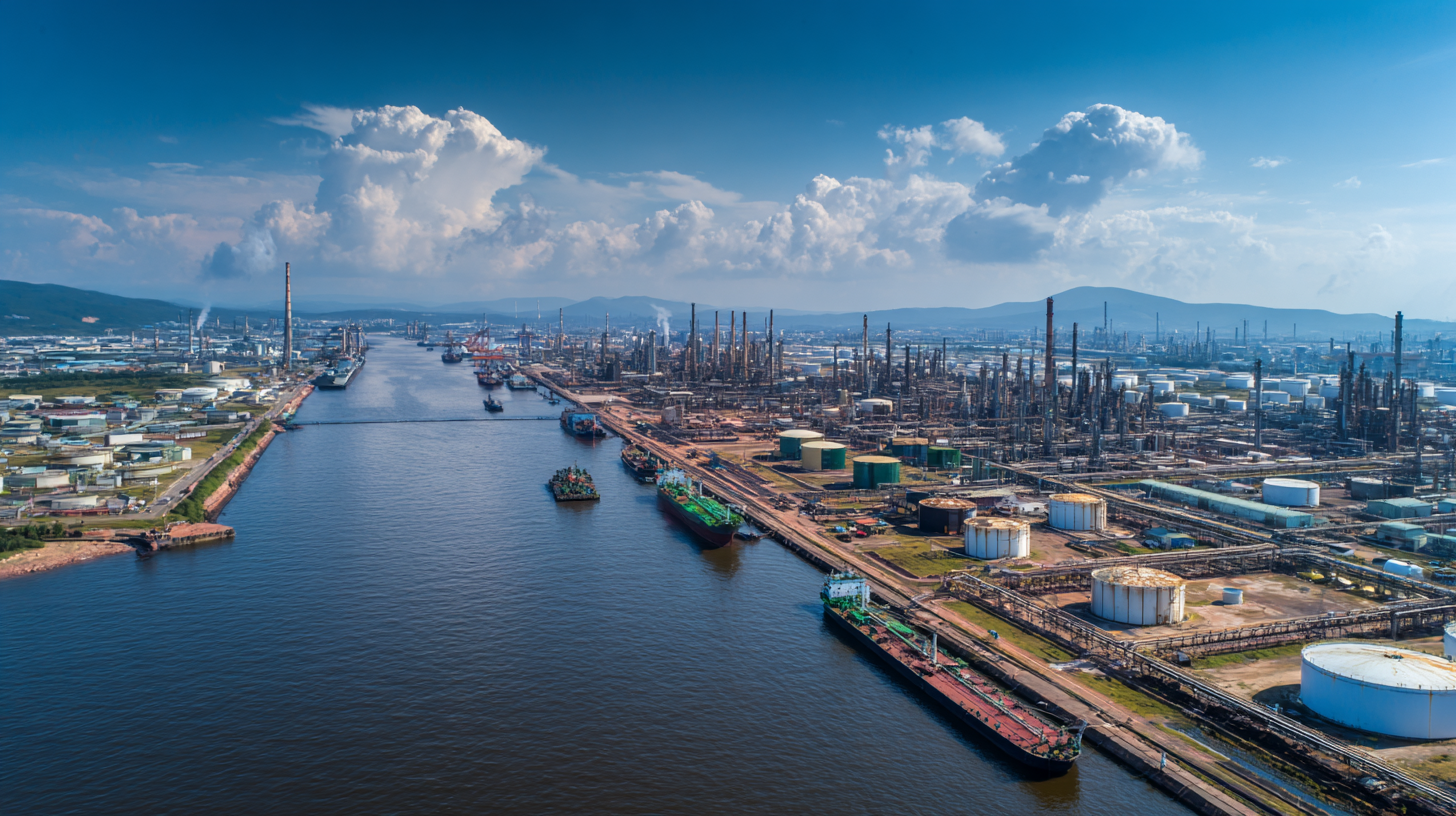Innovative Solutions for 63428-92-2 Industries Empowering Sustainable Growth
Table of Contents
- Innovative Technologies in the 63428-92-2 Industry and Their Environmental Impact
- Key Performance Indicators for Measuring Sustainable Growth in the 63428-92-2 Sector
- Implementation Checklist for Eco-friendly Practices in 63428-92-2 Manufacturing
- Analyzing Market Trends: The Future of 63428-92-2 Industries Towards Sustainability
- Case Studies: Successful Sustainable Initiatives in the 63428-92-2 Industry
- Regulatory Compliance and Its Role in Promoting Sustainability in 63428-92-2 Manufacturing
- FAQS
- Conclusion
- Related Posts
In recent years, the chemical industry has witnessed a significant transformation towards sustainable practices, driven by the need for innovative solutions that align with environmental goals. The compound with CAS number 63428-92-2 plays a vital role in this evolution, especially within sectors such as agriculture, personal care, and cleaning.

According to a recent industry report, the global demand for specialty chemicals, including cationic and nonionic surfactants and fatty amines, is projected to grow at a CAGR of 5.4% through 2025, emphasizing the importance of companies like SHANGHAI QIXUAN CHEMTECH CO., LTD. as key players in delivering specialty additives that not only meet stringent performance criteria but also contribute to sustainable growth. As we delve deeper into innovative applications and strategies surrounding 63428-92-2, we will explore how these advancements empower industries to balance profitability with ecological responsibility.
Innovative Technologies in the 63428-92-2 Industry and Their Environmental Impact
In the quest for sustainable growth within the 63428-92-2 industries, innovative technologies play a pivotal role in minimizing environmental impact. With rising global GDP, the escalation of food waste has become a pressing issue. Innovations in upcycling food waste are transforming what was once considered trash into valuable resources, demonstrating a shift towards a circular economy. By implementing advanced processing technologies, companies can not only reduce waste but also create eco-friendly products that cater to burgeoning market demands.
Moreover, the exploration of sustainable building materials has gained traction as it aligns with global trends in environmental responsibility. Cutting-edge production technologies have emerged, focusing on enhancing performance while decreasing the ecological footprint of construction activities. Similarly, in the agrifood sector, green processing innovations are fostering climate solutions, aimed at reducing greenhouse gas emissions and enhancing resource efficiency within supply chains. At Shanghai Qixuan Chemtech Co., Ltd., we are dedicated to producing specialty chemicals that support these innovative practices across various industries, contributing to a more sustainable future.
Key Performance Indicators for Measuring Sustainable Growth in the 63428-92-2 Sector
In recent years, industries associated with the compound 63428-92-2 have witnessed a paradigm shift towards sustainability. To truly measure the impact of this shift, it's essential to establish Key Performance Indicators (KPIs) that reflect not only financial outcomes but also environmental and social metrics. Effective KPIs in this sector could include measures such as the reduction of carbon emissions, water usage efficiency, and waste management effectiveness, providing a holistic view of an organization’s sustainability efforts.

Moreover, companies should consider integrating these KPIs into their overall business strategy. This alignment ensures that sustainable practices become a core aspect of operations rather than an afterthought. Data-driven insights gained from monitoring KPIs can guide businesses in making informed decisions, such as investing in cleaner technologies or optimizing supply chains for better environmental performance. By leveraging KPIs, the 63428-92-2 industries can set impactful goals that not only drive sustainable growth but also enhance their competitive edge in an increasingly eco-conscious market.
Implementation Checklist for Eco-friendly Practices in 63428-92-2 Manufacturing
In the rapidly evolving landscape of 63428-92-2 industries, implementing eco-friendly practices is not just a trend; it's a necessity for sustainable growth. The first step in this journey is to conduct a thorough assessment of current manufacturing processes. Identify areas where energy consumption can be reduced, waste minimized, and resources optimized. This could involve switching to renewable energy sources, adopting energy-efficient technologies, and integrating waste reduction strategies within the production line. Such initiatives not only contribute to environmental preservation but also promote cost savings in the long run.

Next, fostering a culture of sustainability among employees is crucial. Comprehensive training programs should be developed to educate staff on eco-friendly practices and the importance of their roles in this transition. Encouraging team members to participate in sustainability initiatives, such as recycling programs or energy conservation campaigns, can significantly boost morale and engagement. This collaborative approach not only enhances productivity but also builds a stronger commitment to environmentally conscious practices across the organization. By prioritizing these steps, 63428-92-2 manufacturing facilities can lead the charge towards a more sustainable future.
Analyzing Market Trends: The Future of 63428-92-2 Industries Towards Sustainability
The future of industries associated with the chemical compound 63428-92-2
The future of industries associated with the chemical compound 63428-92-2 is poised for transformation as market trends increasingly emphasize sustainability. As consumers and regulatory bodies alike demand greener practices, companies are reassessing their operational frameworks. This shift is leading to innovative solutions that not only comply with environmental standards but also enhance efficiency and profitability. Sustainable alternatives are being developed, focusing on reducing waste and energy consumption while simultaneously optimizing production processes.
Additionally, the rise of technological advancements plays a pivotal role in shaping the sustainability trajectory of 63428-92-2 industries. The integration of smart manufacturing and data analytics allows for real-time monitoring of resource usage and emissions. Companies are harnessing these technologies to create circular economy models, reducing their environmental footprint.
As investment in green technologies increases, organizations will not only cater to the growing eco-conscious market but will also establish a competitive edge in an increasingly regulated environment. This dynamic landscape suggests a promising path forward, where economic growth aligns with ecological responsibility.
Case Studies: Successful Sustainable Initiatives in the 63428-92-2 Industry
The 63428-92-2 industry has seen a transformative wave of sustainable initiatives that not only address environmental concerns but also enhance operational efficiency. One notable case study involves a major manufacturer that adopted a circular economy model, significantly reducing waste by repurposing by-products into new materials. This approach not only minimized their environmental footprint but also created new revenue streams by tapping into emerging markets for recycled materials. Through innovative partnerships and technology adoption, this company has set a benchmark for others in the sector.
Another inspiring example comes from a smaller enterprise that implemented green chemistry principles in its production processes. By reformulating their products to use less toxic substances, they not only improved worker safety but also attracted a customer base that values sustainable practices. This shift has allowed them to differentiate themselves in a competitive market, showcasing that sustainability can drive both ethical and economic success. These case studies illustrate that sustainable initiatives in the 63428-92-2 industry lead to empowered growth, paving the way for a greener future.
Innovative Solutions for 63428-92-2 Industries
Empowering Sustainable Growth
This chart illustrates the impact of various sustainable initiatives implemented in the 63428-92-2 industry over the past five years. The data reflects the percentage increase in sustainable practices adopted across different categories including energy efficiency, waste reduction, and water conservation.
Regulatory Compliance and Its Role in Promoting Sustainability in 63428-92-2 Manufacturing
In the landscape of specialty chemicals, regulatory compliance serves as a cornerstone for promoting sustainability within the manufacturers of 63428-92-2. The Paris Agreement and the subsequent European Green Deal have created a paradigm shift, urging companies to adapt their practices toward eco-friendliness. According to a report from the International Council of Chemical Associations, compliance with environmental regulations not only minimizes ecological footprints but can also reduce costs associated with waste management and energy consumption by up to 30%.
At SHANGHAI QIXUAN CHEMTECH CO., LTD., our commitment to sustainable growth is evident in our production of fatty amines and surfactants. By adhering to strict regulatory standards, we ensure that our cationic and nonionic surfactants are not only effective but also environmentally safe. Studies have shown that innovation in compliance-driven manufacturing can lead to a 25% improvement in resource efficiency. As we continue to create specialty additives used across various industries—from agriculture to personal care—we align our production methods with sustainability goals, proving that regulatory compliance is not merely a requirement but a catalyst for innovation and growth.
FAQS
: Innovative technologies are crucial in minimizing environmental impact, transforming food waste into valuable resources, and supporting a shift towards a circular economy through advanced processing technologies.
Sustainable building materials align with global environmental responsibility trends, and new production technologies enhance performance while significantly reducing the ecological footprint of construction activities.
KPIs are metrics that measure financial, environmental, and social outcomes. They are essential for providing a holistic view of sustainability efforts and guiding companies in aligning sustainable practices with their overall business strategy.
By integrating KPIs into their operations, businesses can gain data-driven insights that inform decisions on investing in cleaner technologies and optimizing supply chains, ultimately driving sustainable growth.
Regulatory compliance is vital for promoting sustainability as it encourages eco-friendly practices, reduces costs associated with waste management and energy consumption, and aligns manufacturing with sustainability goals.
Compliance with environmental regulations can minimize ecological footprints and lead to significant cost savings, with some studies indicating a potential reduction of waste management and energy costs by up to 30%.
Innovation in compliance-driven manufacturing can enhance resource efficiency, with reports showing improvements of up to 25%, proving that regulatory adherence can be a catalyst for innovation and growth.
The company produces fatty amines and surfactants that adhere to strict regulatory standards, ensuring that they are effective while also being environmentally safe.
The trend encourages industries to adopt innovative practices and technologies that not only meet market demands but also contribute to a more sustainable future, addressing issues such as greenhouse gas emissions and resource efficiency.
Upcycling food waste is a significant step towards a circular economy, as it transforms waste materials into valuable resources, reducing overall waste and promoting sustainable resource use within the industry.
Conclusion
The blog titled "Innovative Solutions for 63428-92-2 Industries Empowering Sustainable Growth" explores the exciting advancements and environmental implications of technologies within the 63428-92-2 sector. It highlights the importance of key performance indicators for assessing sustainable growth, providing an implementation checklist for eco-friendly practices in manufacturing, and analyzing market trends that steer the future of these industries towards sustainability.
Additionally, through case studies showcasing successful sustainable initiatives, the blog underscores how regulatory compliance plays a vital role in fostering environmentally responsible manufacturing practices. At SHANGHAI QIXUAN CHEMTECH CO., LTD., we are committed to producing specialty chemicals, including fatty amines and surfactants, to support industries tied to 63428-92-2, thereby contributing to a sustainable future.
Related Posts
-

Challenges Faced with Best Waterproof Coating in Modern Construction
-

Ultimate Guide to Cationic Solubilizers Transforming Formulation Efficiency with Data Insights
-

How to Effectively Utilize Oleyl Diamine in Your Industrial Processes
-

Leading the Global Market: Unveiling the Best Splitbreak 7309 from Top Exporting Manufacturers
-

The Ultimate Guide to Selecting the Best Oilfield Demulsifiers and Dehydrating Chemicals for Your Operations
-

Choosing the Right Manufacturer for Best Surface Dressing: A Comprehensive Comparison Guide

